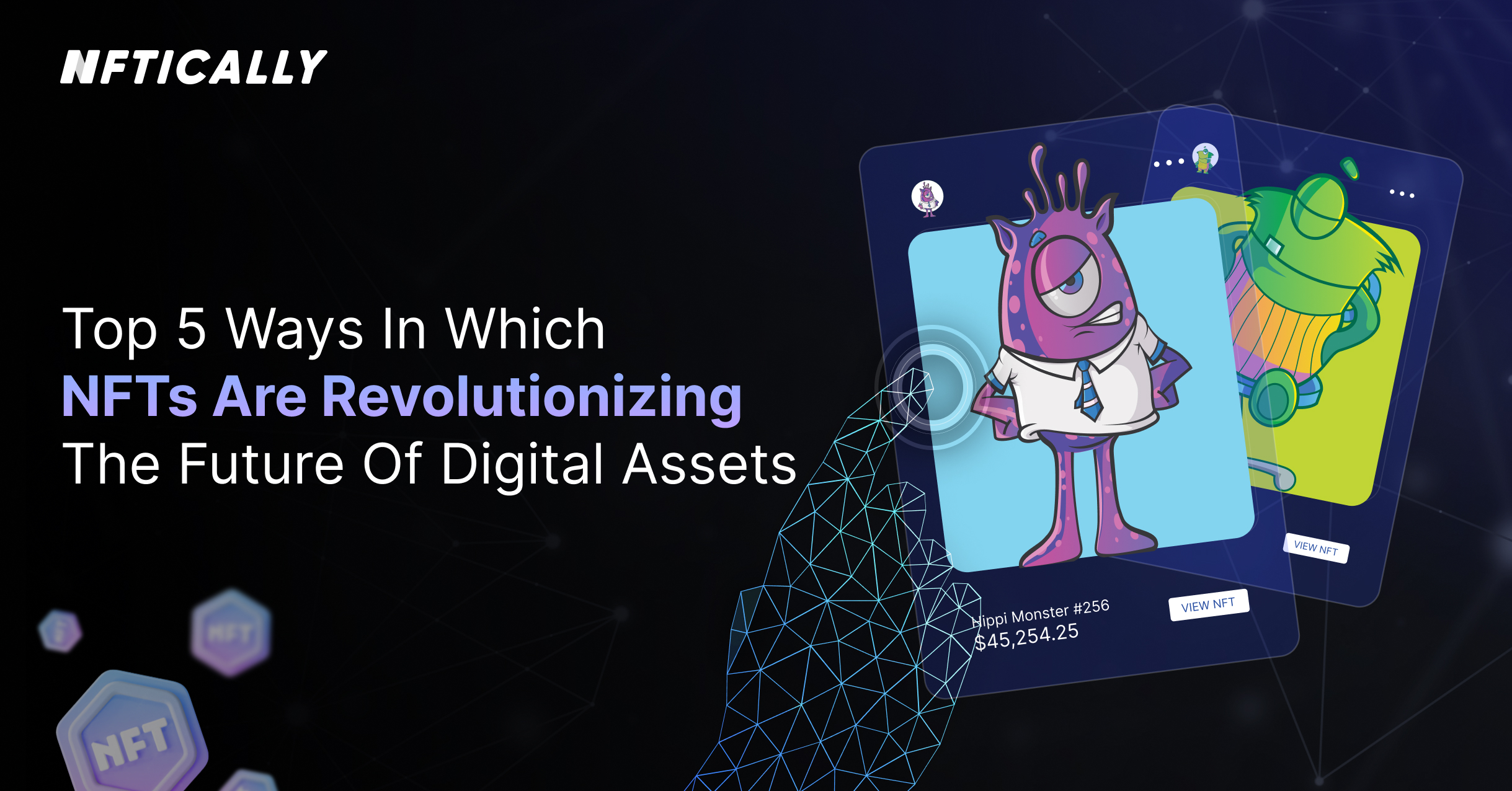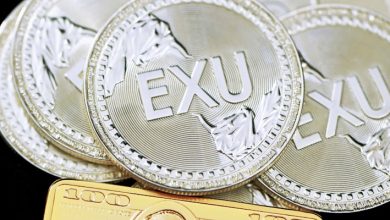The Future of NFTs in Digital Economy

- Understanding the Rise of NFTs in the Digital Economy
- Exploring the Potential Impact of NFTs on Traditional Markets
- Challenges and Opportunities for NFTs in the Future
- The Role of Blockchain Technology in the NFT Ecosystem
- NFTs as a New Asset Class: What Investors Need to Know
- Regulatory Considerations for NFTs in the Global Economy
Understanding the Rise of NFTs in the Digital Economy
The rise of Non-Fungible Tokens (NFTs) in the digital economy has been nothing short of remarkable. NFTs have gained significant traction in recent years, with artists, musicians, and even sports teams leveraging this technology to create unique digital assets. NFTs are essentially digital tokens that represent ownership of a specific item or piece of content, such as artwork, music, or videos.
One of the key reasons behind the popularity of NFTs is their ability to provide proof of ownership and authenticity in the digital realm. This has opened up new opportunities for creators to monetize their work and engage with their fans in innovative ways. Additionally, NFTs have the potential to revolutionize the way we think about ownership and value in the digital age.
As NFTs continue to gain mainstream adoption, it is important for businesses and individuals to understand the implications of this technology on the digital economy. By embracing NFTs, companies can unlock new revenue streams, enhance customer engagement, and differentiate themselves in a crowded marketplace. It is clear that NFTs are here to stay and will play a significant role in shaping the future of the digital economy.
Exploring the Potential Impact of NFTs on Traditional Markets
Exploring the potential impact of Non-Fungible Tokens (NFTs) on traditional markets is crucial in understanding the future of digital economy. NFTs have gained significant traction in recent years, with their ability to represent ownership of unique digital assets. This innovation has the potential to revolutionize how traditional markets operate, offering new opportunities for creators and investors alike.
One of the key ways NFTs can impact traditional markets is through the tokenization of real-world assets. By representing physical assets such as real estate, art, or collectibles as NFTs, these assets can be bought, sold, and traded on digital platforms with ease. This opens up a whole new world of possibilities for investors looking to diversify their portfolios and access previously illiquid markets.
Furthermore, NFTs can also streamline the process of buying and selling digital assets in traditional markets. By using blockchain technology to verify ownership and authenticity, NFTs can reduce the risk of fraud and ensure that transactions are secure and transparent. This increased level of trust can attract more participants to traditional markets, boosting liquidity and driving growth.
Challenges and Opportunities for NFTs in the Future
As NFTs continue to gain popularity in the digital economy, they face both challenges and opportunities that will shape their future trajectory. One of the main challenges for NFTs is the issue of scalability. As the demand for NFTs grows, there is a need for blockchain networks to handle a larger volume of transactions efficiently. This scalability challenge is crucial for the widespread adoption of NFTs in various industries.
Another challenge for NFTs is the environmental impact of their creation and transactions. The energy consumption of blockchain networks used for minting and trading NFTs has raised concerns about their carbon footprint. Addressing these environmental concerns will be essential for the long-term sustainability of NFTs in the digital economy.
Despite these challenges, NFTs also present exciting opportunities for innovation and growth. One of the key opportunities for NFTs is their potential to revolutionize the art and entertainment industries. Artists and creators can use NFTs to tokenize their work, establish ownership rights, and engage directly with their audience.
Furthermore, NFTs offer new possibilities for monetization and value creation in the digital space. Brands and businesses can leverage NFTs to create unique digital assets, reward customer loyalty, and unlock new revenue streams. The versatility of NFTs opens up a world of possibilities for digital ownership and interaction.
The Role of Blockchain Technology in the NFT Ecosystem
Blockchain technology plays a crucial role in the NFT ecosystem, providing a secure and transparent way to verify ownership and authenticity of digital assets. By utilizing blockchain, NFTs are able to be minted, bought, sold, and traded with confidence, as each transaction is recorded on a decentralized ledger that cannot be altered or tampered with.
One of the key benefits of blockchain in the NFT space is its ability to eliminate the risk of counterfeit or fraudulent digital assets. Each NFT is assigned a unique cryptographic signature that is stored on the blockchain, ensuring that it is one-of-a-kind and cannot be duplicated. This level of security and immutability is what makes NFTs so valuable and sought after in the digital economy.
Furthermore, blockchain technology enables smart contracts to be integrated into NFTs, allowing for automated royalty payments to creators every time their digital asset is resold. This feature not only benefits artists and content creators but also ensures that they are fairly compensated for their work in perpetuity.
In conclusion, the role of blockchain technology in the NFT ecosystem is paramount to its success and growth in the digital economy. By providing a secure and transparent way to verify ownership, eliminate fraud, and automate royalty payments, blockchain is revolutionizing the way we buy, sell, and trade digital assets. As the NFT market continues to expand, blockchain will undoubtedly remain at the forefront of this innovative and transformative technology.
NFTs as a New Asset Class: What Investors Need to Know
NFTs, or non-fungible tokens, have emerged as a new and exciting asset class in the digital economy. Investors are increasingly looking to diversify their portfolios by including NFTs as part of their investment strategy. However, it is essential for investors to understand what NFTs are and how they differ from traditional assets.
Unlike fungible tokens like cryptocurrencies, NFTs are unique digital assets that represent ownership of a specific item or piece of content. This uniqueness is what gives NFTs their underlying value and makes them attractive to collectors and investors alike. NFTs can represent anything from digital art and music to virtual real estate and in-game items.
Investors need to be aware of the risks associated with investing in NFTs, including market volatility and regulatory uncertainty. It is crucial to do thorough research and due diligence before diving into the world of NFTs. Additionally, investors should consider factors such as the reputation of the creator, the scarcity of the NFT, and the demand for the underlying asset.
As with any investment, it is essential to have a clear investment thesis and strategy when investing in NFTs. Investors should consider factors such as their risk tolerance, investment goals, and time horizon before allocating capital to NFTs. Diversification is also key, as investing solely in NFTs can expose investors to significant risk.
Regulatory Considerations for NFTs in the Global Economy
When it comes to the regulatory landscape for NFTs in the global economy, there are several key considerations that need to be taken into account. As non-fungible tokens continue to gain popularity and adoption, regulators around the world are starting to pay closer attention to this emerging asset class. One of the main concerns is the lack of clarity around how NFTs should be classified and regulated. Some argue that NFTs should be treated as securities, while others believe they should be considered as digital assets.
Another important aspect to consider is the issue of copyright and intellectual property rights. Many NFTs are based on digital artworks or other creative works that are protected by copyright law. This raises questions about who owns the rights to these works and how they can be transferred through the sale of an NFT. Regulators are still grappling with how to address these issues and ensure that creators are fairly compensated for their work.
Additionally, there are concerns about the potential for fraud and scams in the NFT market. Due to the decentralized nature of blockchain technology, it can be difficult to trace the origins of an NFT or verify its authenticity. This has led to instances of fake NFTs being sold to unsuspecting buyers, raising questions about consumer protection and the need for greater transparency in the market.



